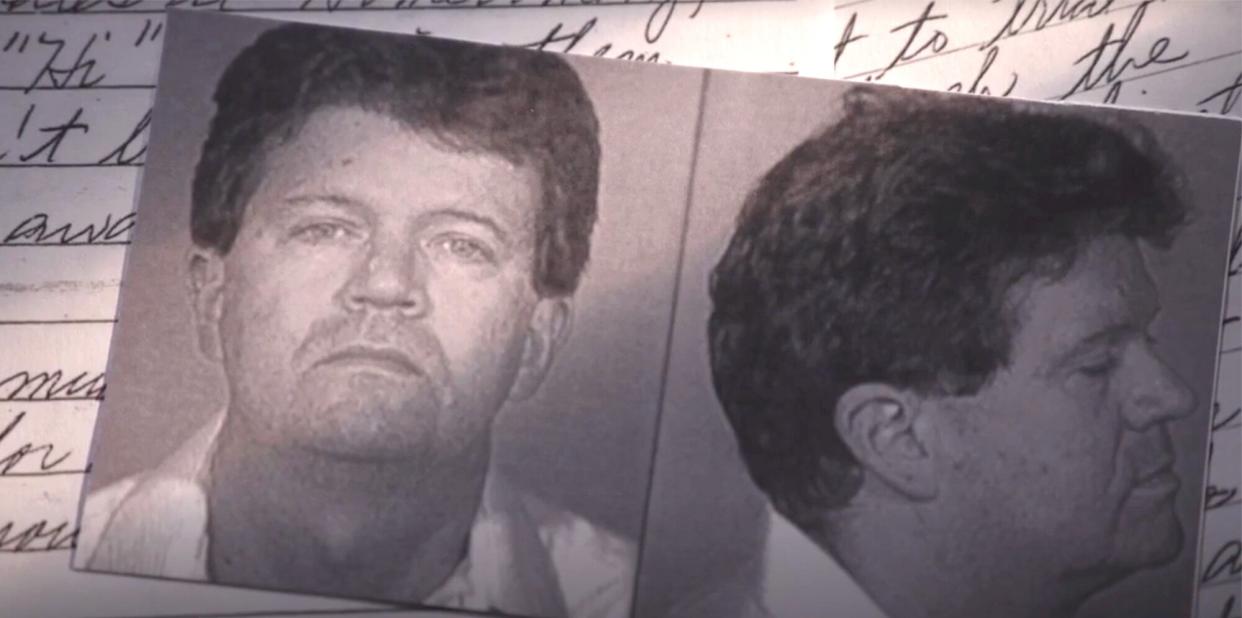Last Call review: HBO's serial killer doc is powerful and infuriating

HBO Serial killer Richard Rogers
There are murders in HBO's Last Call: When a Serial Killer Stalked Queer New York — at least five, probably more. But the other crime at the heart of this powerful and infuriating true-crime documentary is why it took decades and countless pleas for help from the LGBTQ+ community to capture the man responsible for so much death.
This thoughtful, well-paced series from director Anthony Caronna weaves together illuminating social and historical context, loving explorations of the victims' lives, and a gripping criminal mystery to create an emotional and educational odyssey that transcends the standard boundaries of true crime.
In 1991, a maintenance worker in Lancaster County, PA found a dismembered male body — that of Peter Anderson, a 54-year-old banker from Philadelphia — in a rest stop trash can. Then came Thomas Mulcahy, 57, a married father of four, whose dismembered body was discovered in 1992 by maintenance workers in Woodland Township, New Jersey. Anthony Marrero, a 44-year-old sex worker, was next, found in the woods of Ocean County, NJ in 1993, followed by Michael Sakara, a 56-year-old typesetter, whose partial remains were found by a hot dog vendor in Rockland County, NY. Though the men didn't know one another, all of them had one thing in common: They were last seen in New York City, in areas and bars frequented by gay men.
Based on the nonfiction book by Elon Green, Last Call hones its focus on the many ways these murder investigations — which remained separate for years, due to jurisdictional issues and sub-par communication between law enforcement agencies — were hindered from the start by implicit and overt police bias. "More often than not the police back then were either indifferent or hostile" to the LGBTQ+ community, says Matt Foreman, a former director at New York City's Anti-Violence Project, which was founded in 1980 after a rise in bias attacks.

HBO Serial killer Richard Rogers
As a result, the cops themselves knew nothing about the community whose help they would need to stop the killer. "You know, it's just a different world," says Nick Theodos, a former NJ State Police detective who was brought in to work the Mulcahy case. Using interviews with community organizers, archival footage, and news reports from New York's Gay USA public-access broadcast, Last Call composes a vivid illustration of the distrust and suspicion that divided the city's gay community from law enforcement at the time. Because queer New Yorkers felt safer reporting crimes to groups like AVP than the police, the detectives investigating these murders were also less likely to connect them to the ongoing rise in anti-LGBTQ+ hate crimes.
The series is particularly successful at revealing how this barrier — and other issues facing the LGBTQ+ community at the time — persist to this day. At the conclusion of his interview with Anthony Caronna, former Pennsylvania State Police corporal Carl Harnish asks the director, "Why is the emphasis on the gay part?" Jay Musser, Harnish's former partner on the Peter Anderson murder, repeatedly insists that the victim's sexuality was "irrelevant" to the investigation, adding, "I don't know anything about the community." In the next episode, Caronna interviews a man who was drugged and taken back to his apartment in 1992 by a man who had a duffle bag containing rope. He escaped but didn't call the NYPD. "What are they gonna do?" he scoffs. "Nothing!"
It took 10 years for police to locate and arrest the perpetrator, Richard Rogers, a 51-year-old nurse at New York's St. Vincent's hospital — but as Last Call reveals, the story only gets more devastating from there. Thankfully, Caronna balances the agony of the myriad injustices with attentive and affectionate interludes devoted to the men who were murdered. Through interviews with friends, former partners, children, and family members, Last Call carefully constructs portraits of Anderson, Mulcahy, Marrero, and Sakara that celebrate them as men who loved and were loved. And Marrero's great-nephew, Antonio Marrero, reveals that his own parents disowned him when he came out as bisexual — which made him even more determined to keep his uncle's memory alive and break the cycle of shame in his family.
Antonio's story dovetails effectively with Last Call's overarching message: Every hard-fought victory for the LGBTQ+ community is built on a mountain of setbacks, and the prize of progress, though essential, is never perfect. Grade: A-
The first episode of Last Call: When a Serial Killer Stalked Queer New York is streaming now on Max. New episodes air Sundays at 9 p.m. on HBO.
Sign up for Entertainment Weekly's free daily newsletter to get breaking TV news, exclusive first looks, recaps, reviews, interviews with your favorite stars, and more.
Related content:

